A Lot Of It Depends On What You Know About Yourself! The Stressfulness Of A Job Varies SO Much From Person
a lot of it depends on what you know about yourself! the stressfulness of a job varies SO much from person to person, depending on their abilities and preferences.
I would guess that people with AvPD probably value alone time (it’s restful), anonymity (personal connection is scary), and predictability (if you know what to do, you’re less likely to make a mistake and be criticized).
in general, back room jobs usually involve less face time with people. same with night shifts. stuff like data entry is usually pretty easy and chill, + some jobs like that will be short term, so if you have a hard time quitting, having the endpoint built-in can be a relief.
and if you’re interested in specifically limited-term work and don’t know where to begin, you can look into temp and staffing agencies! they coordinate all kinds of stuff like that, and you can tell them what sort of timespan you’re looking for.
here are some things to think about:
are you more stressed out by social interactions, or having to face things on your own?
can you self-manage? or do you need guidance and support from a boss, partner, or team?
do you learn quickly? how are your executive skills? prioritizing, initiating tasks, staying focused, multi-tasking etc. if these are strong, you might do great working solo (keywords like.. “self-directed” and “independent”)
would you rather interact mostly...
with customers, like in a retail store? (can be very stressful and fast-paced, but you’re basically anonymous from day to day)
or with coworkers, like in an office? (way more predictable and usually slower-paced. but they get to know you over time, so you’re much more visible as a person)
do you like corporate/chain environments, where there’s already lots of structure in place?
there’s generally a clear procedure for changing your hours, quitting, etc. and people don’t take it so personally. and your job is well-defined: you know what’s expected of you
but if having set expectations feels too inflexible and ‘trapped’ for you, then consider small local businesses, or places with very chill management (usually young managers, in my experience)
that’s all the general stuff I can think of ~ so I’m just gonna speak for myself now, and hope the example is useful!
my tactic is to look for jobs that
will put low responsibility/attention on me
involve something I actually like or am good at
and don't set off too many of my anxiety/stress triggers!
for less responsibility and pressure, I personally want to work with a group of other people doing the same job as me -- that way not everything is automatically My Problem, and I can stick to the things I’m good at. it also means I have a better chance of finding someone non-scary to help me and teach me, or to partner with. I can’t handle not knowing what to do, so being (functionally & emotionally) able to ask someone for help is A+.
I gravitate toward working with animals, books, and things I can physically organize or clean. I really enjoy that stuff -- which means it helps me self-soothe throughout the day.
(same with competence!! I feel inadequate and bad at things by default, so getting to do stuff I’m actually good at is really stabilizing and calming for me. but it’s not mandatory.)
I also watch out for things I know I’d dread/probably suck at. I have ADHD and social anxiety, so I try to avoid self-management, fast paced anything, driving, improvising, phone-heavy work, making public announcements and dealing with difficult customers. I generally look for more limited and pre-defined jobs so I know what to expect.
for me, this means even though I’d be fantastic at tech support, I won’t ever apply at a call center (phones! angry people!); with my memory and attention problems, food service would be a total nightmare, and probably so would receptionist work, managing other people, making deliveries, or anything in a very busy environment.
plus, here is a thing that I suspect might be AvPD-specific:
once I’ve had a job somewhere, I feel super anxious and avoid-y about going back there!! ever, for any reason!
it’s really severe (what if I see someone who knows me?? plus all the Shame Memories and associations and visibility agh. this isn’t healthy, but for now it’s where I’m at.) so ~ no jobs at my favorite places, otherwise I may never go back to them, and that would suck.
but on the other hand -- if you can find a place where other people’s normal is close to your normal, you’ll probably feel more at ease. like, book stores are very inviting for people (workers AND customers) who are quiet and not very sociable! gaming stores are super welcoming for geeks! you’ll fit in better if you already resemble the people there. which also means it’s easier to be invisible when you want to.
some things I’m seriously considering right now are
stocking at a bookstore
working at a flower shop or craft store
maybe a maid service or hotel
and I’m realizing that driving is a huge Thing for me, so I’m starting to look at just what’s nearby. that limits my options a lot, but it’s nice to know what my priorities are.
specific job options really depend on your background/skills, what sort of place you live in, etc. (big city vs small town vs work at home, even), but maybe this is a starting point for narrowing it down!
hope it’s helpful =)
do any of you have job suggestions that are fairly low stress? i need to try to get one this summer but i’m Afraid.
More Posts from Zella-rose and Others
Just want to add:
7 Cups of Tea, the site that has a free “listener” service, also has online therapy. It’s $37.50 per week, billed monthly, which is $150. They do seem to have a more limited number of therapists, but worth checking out!
do you have any advice for someone whose avpd has gotten so bad they've developed agoraphobia? i was supposed to go to college this year but i can't leave the house and i'm just really tired of being like this
Hey.
It sounds like you should talk to a professional about this. It sounds like your agoraphobia is causing you a lot of problems and a professional is going to be able to help you overcome it. You can go to your family doctor for a referral or search online. You should also tell someone about how you’re feeling. A parent or relative, or anyone that can support you.
Sorry we couldn’t be more help. Take care. - Jay.
This is just extremely helpful right now, if you are feeling overwhelmed by current events, and maybe tempted to give up on the whole notion. TW for non-graphic suicidality at the link (but like... how to deal with it!)
Thank you for writing and sharing ❤️
I wrote a post as someone who has gone through months-long periods of time when I genuinely believed it was the end of the world and couldn’t bring myself to get out of bed because of it. These are some emotional strategies I figured out along the way, and hope they’re helpful to someone else.
Hi! Sorry to bother you, but I'm almost certain I have AVPD and I'd like to explain it to my parents, since they've gotten upset over symptoms of AVPD that I've expressed and I want to tell them why I act like that. But they don't really think that PDs are a thing that exists. so how could I explain it to them so that they understand? thank you in advance !!
Hi there anon!
Wow, there’s a lot to unpack here. The most important is probably:
What you want to accomplish by telling your parents
What your relationship with your parents is like
Would you mind sharing a bit more about the situation? You can write more in asks, submit something or just message me, that works too! (And don’t worry, I won’t publish your username either way <3)
Or if you aren’t comfortable with that, I’ll see what advice I can scrounge up as-is =)
shoutout to all of us adults with trauma figuring out how to navigate identifying the need for boundaries, setting boundaries, and trying to be assertive in doing so.
Fuck being "cool"! Fuck being "normal"! 2020 will be all about being genuine and kind while learning to respect and embrace our own and other people's harmless differences even when they go against social norms.
Sometimes people add the cutest nicest tags to one of my posts, and then I sit there giggling like a dork for entire minutes. I love you too, followers!
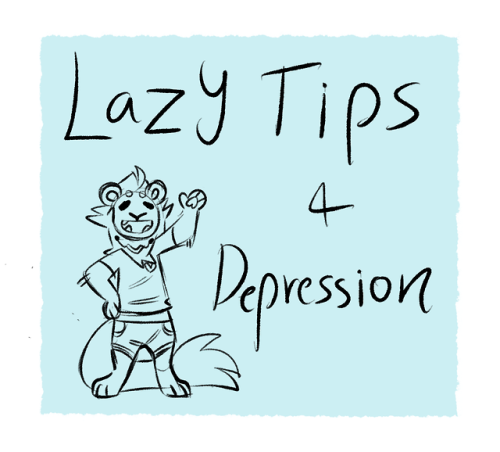
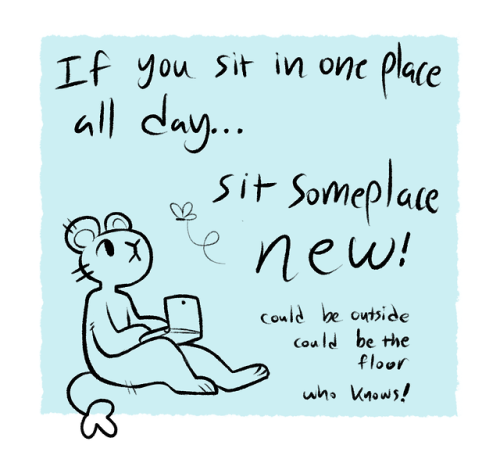
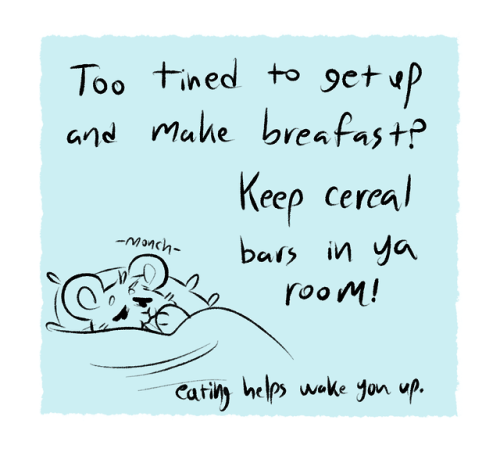
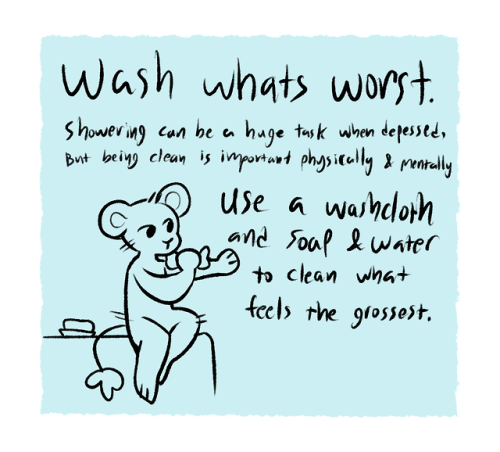


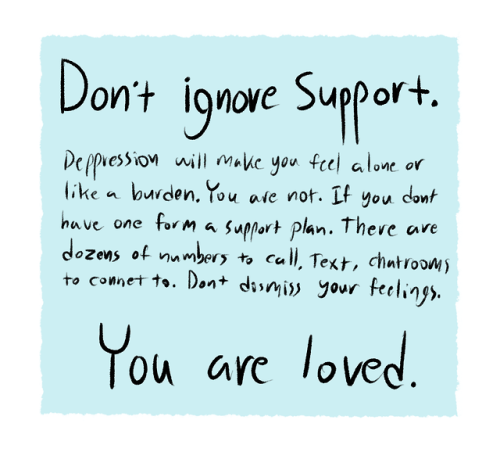
tips n tricks for cool kids Add your own tips if you got em!
I’ve always struggled with social anxiety and self-confidence in different areas. It waxes and wanes in amplitude, but it’s always there. This affects my ability to do research as I struggle to do things like use the phone, send emails asking people to do things in a timely fashion, and finish work due to perfectionism. It was really bad a couple of years ago, during my PhD. We had official annual meetings with a member of staff to check on progress back then, which were a good idea but terrified the students. I always had mine with a member of faculty a lot of people are scared of. I’m not sure why, maybe because their courses were very difficult and they was a strict marker? I’d heard they’d mellowed over the years so maybe, like a fear of the dark, students’ wariness passed down the generations. Whatever the reason, I’d never been scared of them, and always saw them as a fair mind when it came to assessing my progress. I wouldn’t believe myself or my friends mostly, but I’d trust them to tell the truth. On my last meeting they knew I wasn’t very well. I always cried in these meetings through stress/lifting of stress, so true to form the box of tissues were ready and they offered me a fruit tea. I had the summer fruits. It was really sweet and calming, and I didn’t need the tissues that year. We spoke at length about why I was struggling within myself when my work seemed perfectly fine, even really good in places. And we got talking about anxiety when not at work. Turns out both of us have similar social anxiety problems! We both struggle to go in a shop with no or few other customers, because we hate being watched by staff. It’s really specific but I bet it’s common haha. We both hate using the phone, even ordering take away is difficult! Maybe this is why I wasn’t scared of them? At any rate, it was great to know I wasn’t alone, here was a full professor with the same problems I have, still doing science! But, I asked, how do you do it? How did you get this high up the ladder and not quit, or not take it out on yourself? How are you not anxious all the time? Oh, I am anxious, they said. I was really bad for years. Wouldn’t use the phone at all. But then I was made Head of Department. That’s terrifying! What did you do? Well I was still anxious, about using the phone for example. But I realised, the Head of Department uses the phone to call people to get things sorted quickly. And at the moment, I’m Head of Department. That’s the hat I’m wearing. The Head of Department picks up the phone and the Head of Department speaks to people to Get Things Done. That’s a role I’m performing, that’s all, and people expect me to be the Head of Department. And it helped, and now I can use the phone because I’m used to it. Hearing them say that was a bit of an epiphany. They weren’t saying “just suck it up”, it’s a complete reframing of the interaction.
YOU might not like using the telephone to ask so-and-so to do something, but Scientist-In-Charge-Of-Making-This-Thing-Work DOES call Collaborators to remind them, and then Collaborators can respond that they forgot, or they have it scheduled in for next week, because it’s their role to do something.
YOU might be scared of going into that shop, but a Potential Customer does go into shops and look around. Potential Customer might be asked by Sales Rep whether they need help, and Potential Customer can say just browsing. Sales Rep may watch Potential Customer browse, but that’s okay, because they’re waiting to perform their role. And when Potential Customer leaves the shop, they aren’t that role anymore, back to self. Interaction done.
YOU might not want to email that person to ask them for a reference, BUT a Final Year Student DOES send the email, because part of their role is to get a reference at the end. And the person receiving the email also has a role, and that is Someone Who Sometimes Gets Reference Requests, that they can response Yes or No to. Then Final Year Student can get their reference about Final Year Student or can move on to someone else. Interaction over. Slate clean. Sometimes we get so caught up we forget that many of the things we do are divorced from our own self, and we worry about judgements from other people. But in a lot of our interactions, especially at work or school, we have a set of roles and rules. When it’s getting really hard for me to do things like email, phone, or go somewhere, it helps me to think of that Professor’s first day as Head of Department, them sitting there with that weight of responsibility and internally screaming as they pick up the phone the first time, because that’s what Head of Departments do. If they can do it and normalise it, I know I can too. One day! :)
Try stuff. Put plants in your room even if you aren’t the best at caring for them. Attempt that dessert recipe even if it turns out ugly. Listen to that music you’ve been meaning to try for a while. The world is full of infinite sources of goodness and the best thing to do it to try and find as many as possible.
“Being able to feel safe with other people is probably the single most important aspect of mental health; safe connections are fundamental to meaningful and satisfying lives. Numerous studies of disaster response around the globe have shown that social support is the most powerful protection against becoming overwhelmed by stress and trauma.
Social support is not the same as merely being in the presence of others. The critical issue is reciprocity: being truly heard and seen by the people around us, feeling that we are held in someone else’s mind and heart. For our physiology to calm down, heal, and grow we need a visceral feeling of safety.”
—Bessel A. van der Kolk, The Body Keeps the Score: Brain, Mind, and Body in the Healing of Trauma (pdf)
-
 ghostofavictorianbastard liked this · 7 months ago
ghostofavictorianbastard liked this · 7 months ago -
 neuro-typical liked this · 2 years ago
neuro-typical liked this · 2 years ago -
 starlanc3 liked this · 2 years ago
starlanc3 liked this · 2 years ago -
 xpullingteeth liked this · 3 years ago
xpullingteeth liked this · 3 years ago -
 sweetlyminiaturesublime liked this · 5 years ago
sweetlyminiaturesublime liked this · 5 years ago -
 blistering-blood-0 reblogged this · 5 years ago
blistering-blood-0 reblogged this · 5 years ago -
 blistering-blood-0 liked this · 5 years ago
blistering-blood-0 liked this · 5 years ago -
 one-good-day reblogged this · 5 years ago
one-good-day reblogged this · 5 years ago -
 dragonshine liked this · 5 years ago
dragonshine liked this · 5 years ago -
 person-of-many-names reblogged this · 6 years ago
person-of-many-names reblogged this · 6 years ago -
 malfunctioningsublime liked this · 6 years ago
malfunctioningsublime liked this · 6 years ago -
 nocaabm liked this · 7 years ago
nocaabm liked this · 7 years ago -
 nubia-star liked this · 7 years ago
nubia-star liked this · 7 years ago -
 cinderblocked liked this · 7 years ago
cinderblocked liked this · 7 years ago -
 dyvyn liked this · 7 years ago
dyvyn liked this · 7 years ago -
 midnightcat1617 reblogged this · 7 years ago
midnightcat1617 reblogged this · 7 years ago -
 midnightcat1617 liked this · 7 years ago
midnightcat1617 liked this · 7 years ago -
 queuedforevz reblogged this · 7 years ago
queuedforevz reblogged this · 7 years ago -
 ksubanana13 liked this · 7 years ago
ksubanana13 liked this · 7 years ago -
 tipsntrickz reblogged this · 7 years ago
tipsntrickz reblogged this · 7 years ago -
 deadtypewriter liked this · 7 years ago
deadtypewriter liked this · 7 years ago -
 sgdgrgrg reblogged this · 7 years ago
sgdgrgrg reblogged this · 7 years ago -
 moniblues liked this · 8 years ago
moniblues liked this · 8 years ago -
 smolsstudying reblogged this · 8 years ago
smolsstudying reblogged this · 8 years ago -
 heytherestud-blog1 liked this · 8 years ago
heytherestud-blog1 liked this · 8 years ago -
 daniset liked this · 8 years ago
daniset liked this · 8 years ago -
 maliavka liked this · 8 years ago
maliavka liked this · 8 years ago -
 avoidantcactus reblogged this · 8 years ago
avoidantcactus reblogged this · 8 years ago -
 k0iaea reblogged this · 8 years ago
k0iaea reblogged this · 8 years ago -
 twerkonomiks reblogged this · 8 years ago
twerkonomiks reblogged this · 8 years ago -
 imaginecreatedevour reblogged this · 8 years ago
imaginecreatedevour reblogged this · 8 years ago -
 probummer reblogged this · 8 years ago
probummer reblogged this · 8 years ago -
 dippkip liked this · 8 years ago
dippkip liked this · 8 years ago -
 garlic8reath liked this · 8 years ago
garlic8reath liked this · 8 years ago -
 pigeonfeather reblogged this · 8 years ago
pigeonfeather reblogged this · 8 years ago -
 r-r-r-r-refs reblogged this · 8 years ago
r-r-r-r-refs reblogged this · 8 years ago -
 daftafterall liked this · 8 years ago
daftafterall liked this · 8 years ago